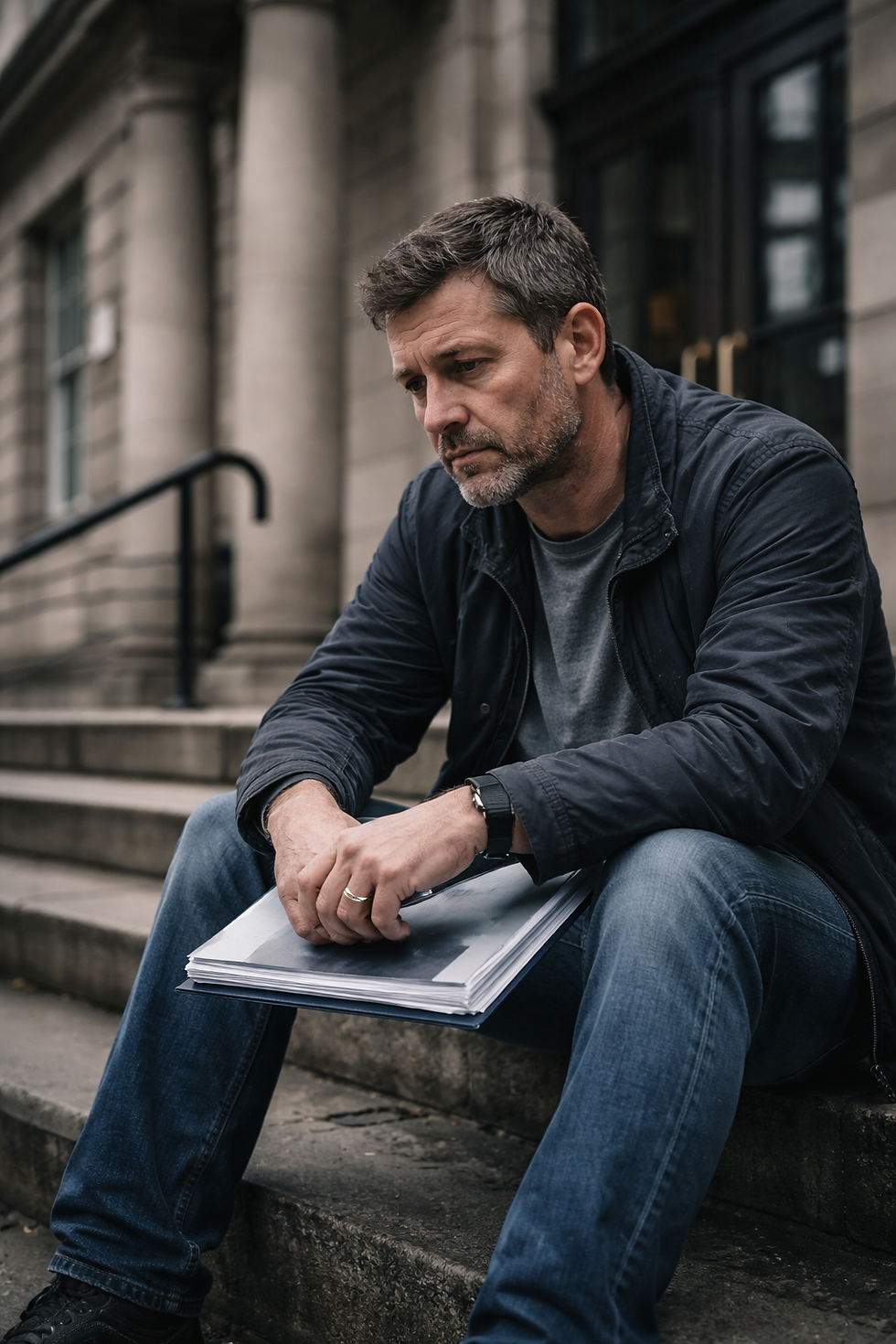When Innocence Isn’t Enough: The Hidden Injustice of Family Court Findings
- Falsely Accused Network

- Nov 11, 2025
- 3 min read
By Michael Thompson, Founder of the Falsely Accused Network
Every week, I hear from men who have lived through one of the most soul-destroying experiences imaginable — being falsely accused of domestic abuse. Some are arrested, interrogated, and then cleared by the police when no evidence supports the allegation. They breathe a sigh of relief, believing that justice has prevailed. But for far too many, the nightmare doesn’t end there.
It just moves to another courtroom.

The Family Court Conundrum
In the family court, the standard of proof is not beyond reasonable doubt — it’s the balance of probabilities. That means a judge can find that you “did” something even when the police, the CPS, and the criminal courts all agree that you didn’t.
In other words, being innocent in law doesn’t protect you from being branded an abuser in family proceedings.
This is where the real injustice begins.
A father who has already endured the humiliation of arrest and false accusation suddenly faces a new layer of punishment. The judge may “find” that he was controlling, or that an argument years ago constitutes “abuse.” These are not findings made on concrete evidence — they are judgments built on impressions, hearsay, and the “balance” of probabilities.
And once that finding is made, it sticks. It follows him like a shadow into every Cafcass report, every child-arrangements hearing, every contact dispute. It poisons his relationship with his children — and it destroys his faith in fairness.
The Cruel Irony of the Domestic Abuse Course
Then comes the next insult: he’s told he must attend a Domestic Abuse Perpetrator Programme (DAPP).
The problem? To participate, he must admit to something he didn’t do.
It’s a psychological trap. If he refuses to “take responsibility,” he’s accused of being in denial. If he agrees, he’s forced to live a lie. Either way, the system wins — and he loses.
Imagine being told that you cannot see your children until you complete a course that requires you to confess to an offence that never happened. Imagine being treated as dangerous, simply because you refuse to say the words that the court wants to hear. It’s coercion under another name.
Police Cleared — Yet Still Condemned
Time and again, I see men who were fully investigated by the police — with no charges, no evidence, no case to answer — still facing family court findings. Judges routinely claim that “the criminal threshold is higher” and that “different standards apply.” But how can justice mean two contradictory truths?
If the police, with all their powers, say no crime was committed, how can a family judge say the opposite without evidence that would stand up anywhere else?
It’s a question that cuts to the heart of fairness in our legal system.
The Emotional Toll
The damage this does is immense. These men lose faith in the courts, in the idea of justice, and sometimes even in themselves. They begin to doubt whether truth has any meaning at all. They become trapped in a system that demands false confessions to regain contact with their own children.
And the children — the very people the court claims to protect — grow up in the shadow of that injustice. They lose a parent not because of harm, but because of a system unwilling to say, “We might have got this wrong.”
A Call for Reform
The Family Court must face this uncomfortable truth: innocent men are being found guilty by proxy. The use of the “balance of probabilities” standard in life-changing abuse findings is unjustifiable when the consequences are so severe.
No one should be forced to “admit” to something they did not do just to prove their worth as a parent. No one should lose their child because a judge “believed” a story that even the police could not substantiate.
At the Falsely Accused Network, we hear these stories every single day. They’re not rare; they’re routine. And until this issue is confronted, we will continue to see a generation of fathers condemned not by evidence, but by assumption.
Because in today’s Family Court, innocence is no longer enough.
---
Contact the Falsely Accused Network
📞 Telephone: 0204 538 8788
📧 Email: support@falselyaccusednetwork.co.uk
🌐 Website: www.falselyaccusednetwork.co.uk
🔗 Linktree: linktr.ee/FalselyAccusedNet
🌀 Support • Awareness • Justice



Comments